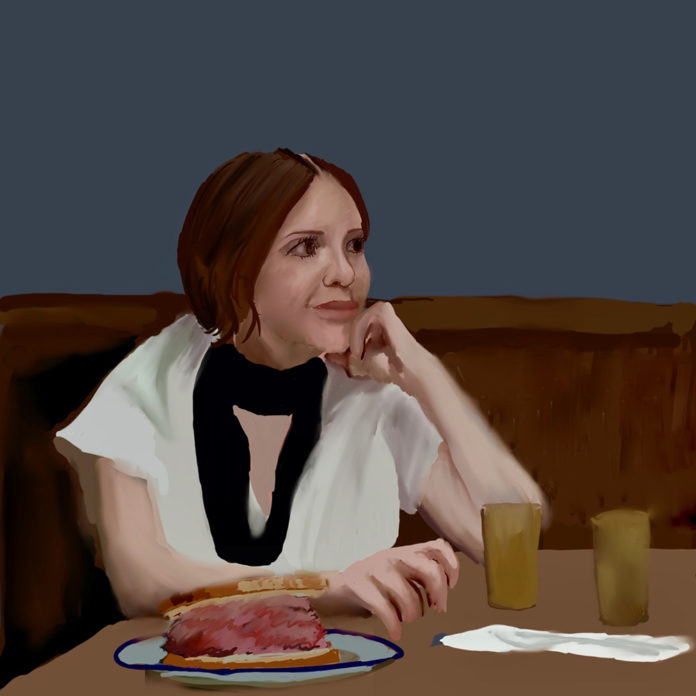This past February, Netflix added “Annie Hall” to its extensive movie catalog. A couple of weeks ago, during my hectic midterms season, I unexpectedly saw it on my Netflix queue –– and I immediately watched it. In the past, old shows like “Gilmore Girls” gained a new, younger audience when they came to Netflix. This was a contributing factor for why “Gilmore Girls” made a reboot in 2016. Since “Annie Hall” is now on Netflix, bored teenagers on a Friday night can scroll through their suggested movies and watch it. There’s no denying that when it was created, “Annie Hall” was a great movie by Hollywood’s standards; it won five Academy Awards in 1978. However, it’s also possible that it could easily offend people today.
Even if you haven’t heard of “Annie Hall,” you’ve definitely heard of Woody Allen. He has instigated a fair share of controversy throughout his life. A notable example occurred in 2014, when Dylan Farrow, Woody Allen’s stepdaughter, wrote an open letter to the New York Times about his predatory behavior. Allen’s character in Annie Hall, Alvy Singer, has controlling and neurotic tendencies. In addition, Alvy’s jokes are dark and candid. He openly jokes about the vapidness of Los Angeles culture, minstrel shows and his sexual promiscuity.
There’s no doubt that Woody Allen’s actions are reprehensible — he is, as I like to say in Yiddish, a “schmuck.” But “Annie Hall” is still one of my favorite movies. As a Jew who is from and has deep family ties to New York City, the cultural significance of the movie means more to me than the small moments that make me uncomfortable. My memories of watching the film with my dad, both of us crying from laughter, outweigh the moments of distaste.
Alvy’s childhood is similar to my grandpa’s childhood; both grew up in Brooklyn in the 1930s. Within the first 10 minutes of the film, Alvy explains that he grew up in an apartment underneath the Cyclone roller coaster on Coney Island. The film humorizes his absurd living situation by showing young Alvy eating soup while the dining room shakes. Unfortunately, my grandpa did not live under a rollercoaster in Brooklyn, but Alvy’s childhood was not too far off from the reality my grandpa experienced. My grandpa grew up in the lower-middle-class neighborhood of Bedford-Stuyvesant, and like Alvy, he didn’t like school all that much. It’s refreshing to watch a movie that relates to my family’s background and depicts the New York City Jewish experience in a comedic way.
Allen also depicts the hectic dynamic of his family dinners, which I’ve definitely experienced while growing up in a Jewish household. In the movie, Alvy meets Annie’s family in Wisconsin. While they eat Easter dinner, Alvy talks to the audience about the composed and passive nature of her family’s dinner conversation. Suddenly, the screen splits and shows Alvy’s family eating Passover dinner and engaging in lively, argumentative discourse about health problems and job security. Seeing this juxtaposition, I can’t help but laugh, because it reminds me of the political debates my family would have during Jewish holidays –– and all other holidays. I’m not saying all Jewish families interact this way, but I am saying Allen’s portrayal of the boisterous dinner conversations he had growing up is entertaining because it’s self-deprecating and connects to my identity as a New York City Jew.
There are people who find “Annie Hall” offensive because they believe it perpetuates stereotypes about Jews. But how I perceive it is that Allen aims to portray his own experiences in the film. In the 1970s, after New York City elected its first Jewish mayor, entertainers shared stories and images of Jewish life in movies, novels, Broadway musicals and television sitcoms. The larger amount of Jewish representation in the entertainment industry brought together the Jewish American community through laughter –– which was critical after the Holocaust. Not everyone is going to understand Alvy’s jokes, and that’s okay; jokes about Jewish cultural norms generally appeal to Jewish people. Part of Merriam Webster’s definition of a “stereotype” is an “oversimplified opinion,” but Allen doesn’t oversimplify Jews, he illustrates their complex quirks.
Some people will also refuse to watch this film because of Woody Allen’s sexual assault accusations. It’s important that we acknowledge these accusations, but that shouldn’t take away from the fact that this is an important movie from an artistic and cultural standpoint. The movie broke many boundaries for romantic comedy filmmaking, with its use of cutaways, non-sequiturs and the fourth wall.
Now that Annie Hall is on Netflix in the U.S., it will draw in a new wave of viewers that might have not watched the movie otherwise. This easy accessibility is a good thing, because I’ll be able to watch the movie with my friends and family to appreciate the quirks of New York Jewish culture. Not many people are Jewish, but many people can enjoy a good romantic comedy. Even “Big Mouth,” an adult cartoon series on Netflix, recreates the scene where Annie and Alvy are chasing lobsters around the kitchen to put them in a boiling pot of water. When, in the real movie, Annie refuses to put the lobster in the pot, Alvy asks “What are you going to do? Take it to the movies?” The scene is one example of how Allen shows the playful, yet non-permanent, nature of love –– something that audiences far and wide can relate to.
Esmé Epstein is a sophomore history major. She can be reached at eepstein@oxy.edu.
![]()



































